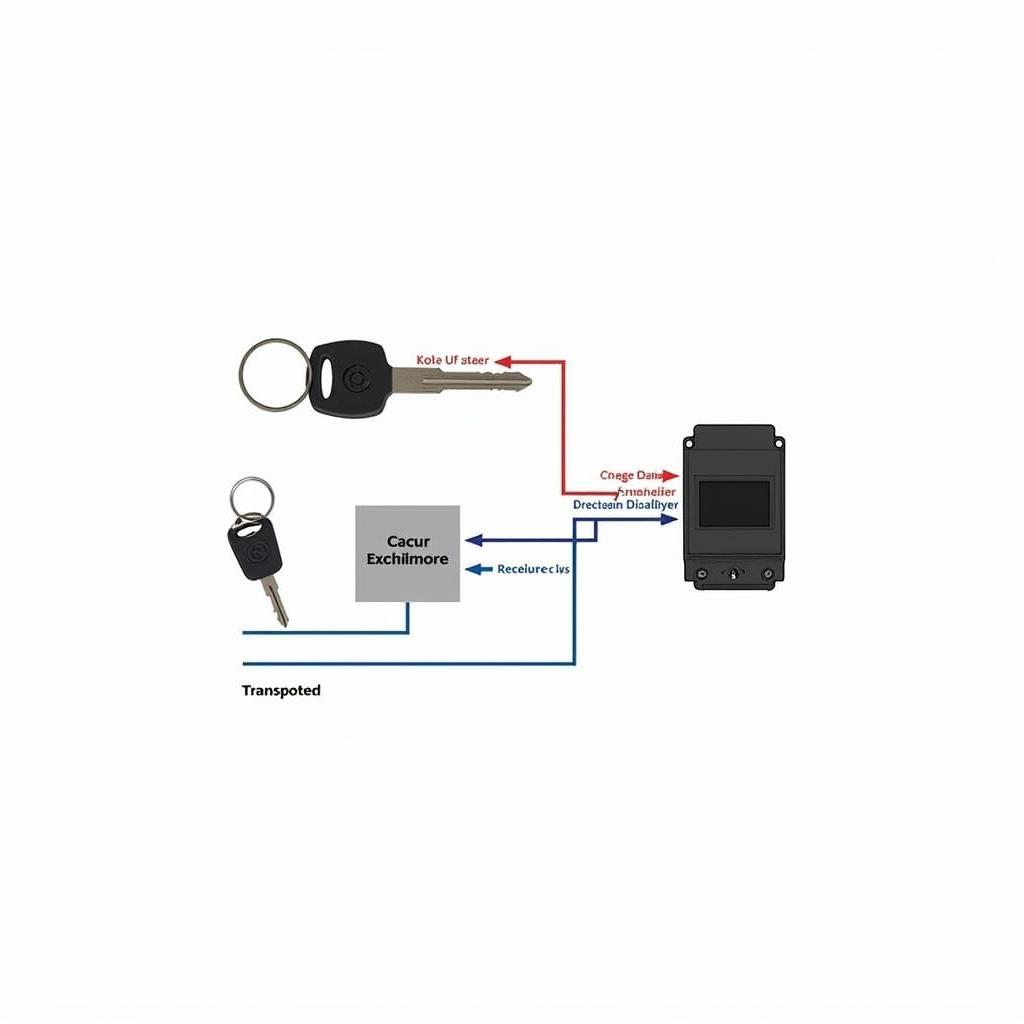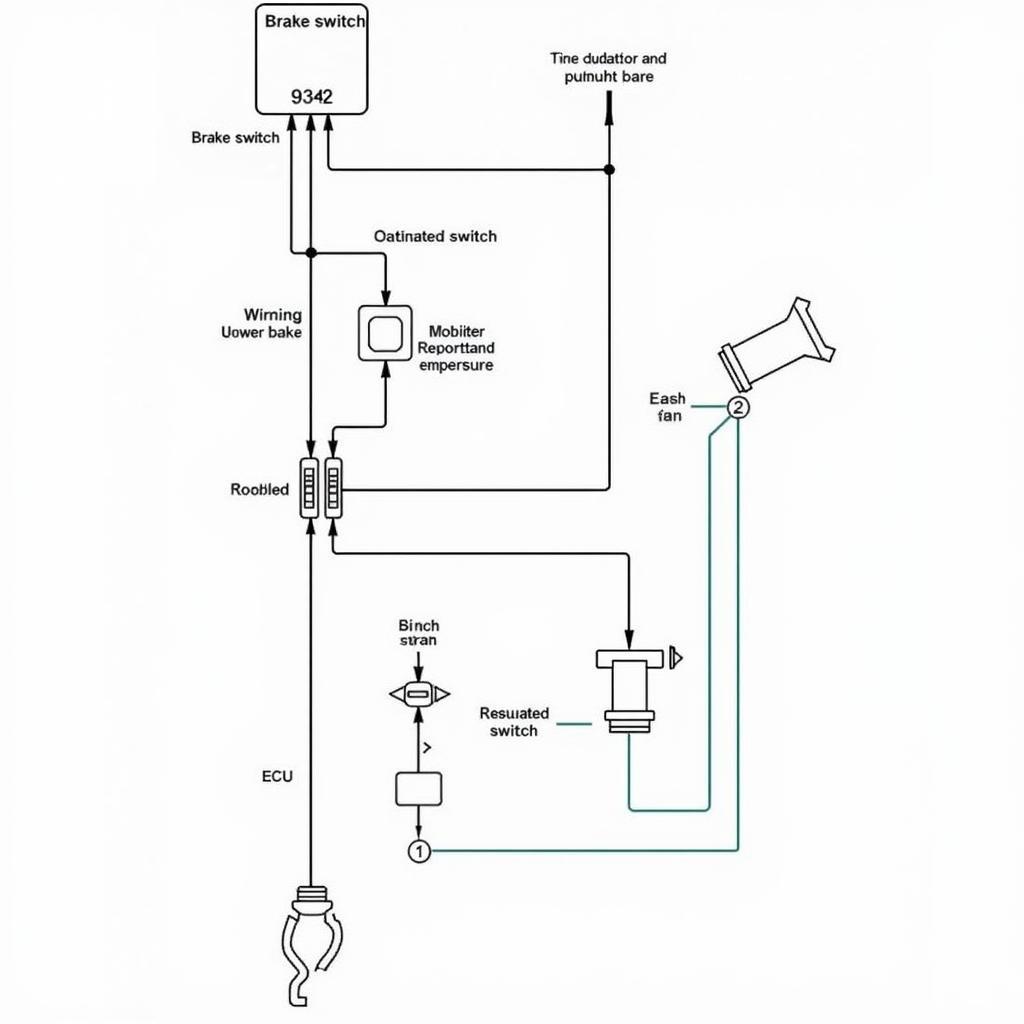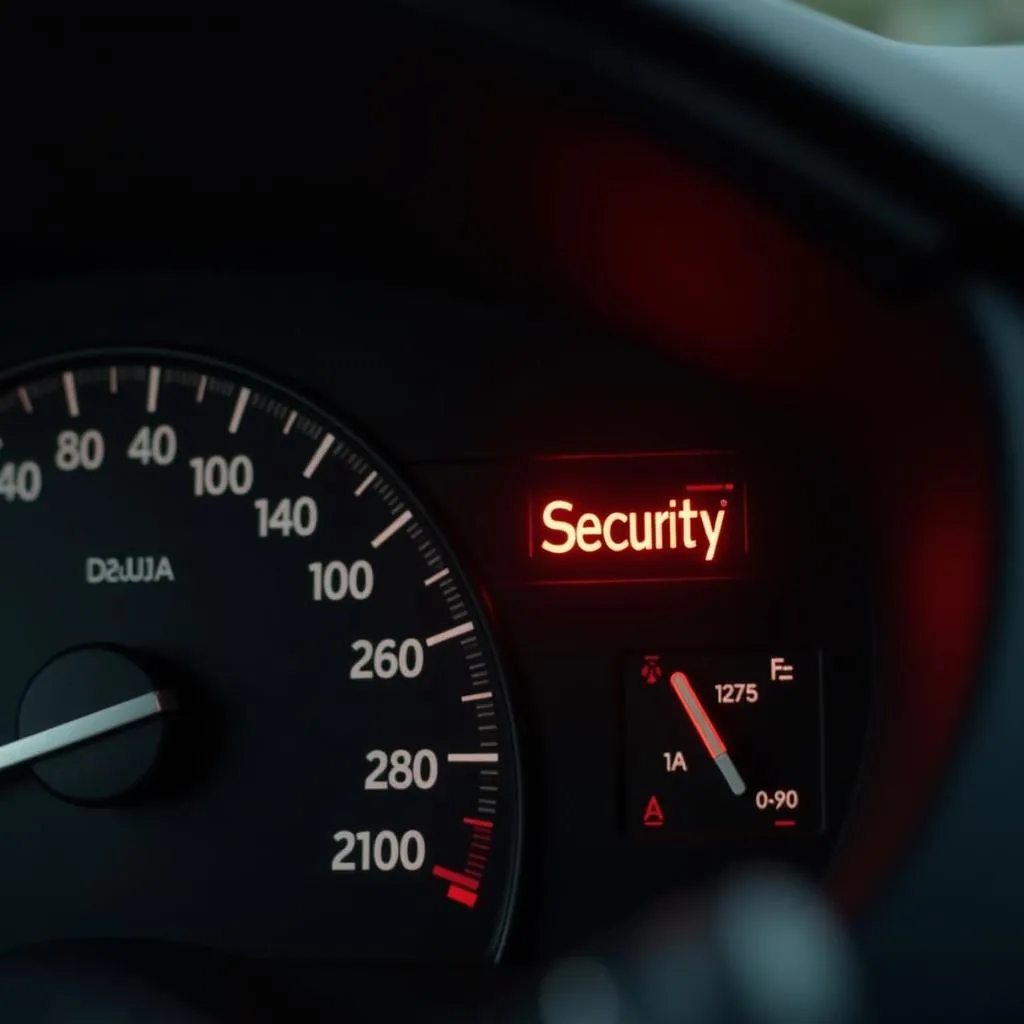Is engine immobilizer anti-theft? Absolutely. In today’s world, car theft is a serious concern, and manufacturers have implemented various security measures to protect vehicles. One of the most effective anti-theft devices is the engine immobilizer. This system electronically disables the engine, preventing it from starting unless the correct key or key fob is present. This article will delve into the intricacies of engine immobilizers, explaining how they work, their benefits, and potential troubleshooting tips if you encounter issues.
How Does an Engine Immobilizer Work?
The engine immobilizer system uses a transponder chip embedded in your car key or key fob. This chip contains a unique identification code. When you insert the key into the ignition or bring the key fob near the car, a receiver in the vehicle reads the code. If the code matches the one programmed into the car’s computer, the immobilizer allows the engine to start. If the codes don’t match, such as when a thief tries to use a regular key or hotwire the car, the engine remains disabled.
 Diagram of Engine Immobilizer System
Diagram of Engine Immobilizer System
The immobilizer communicates with the engine control unit (ECU) to control fuel delivery, ignition, and starter motor operation. Without the correct signal from the immobilizer, the ECU prevents the engine from starting. This makes it extremely difficult for thieves to steal your vehicle, even if they manage to bypass the traditional lock and ignition system.
Benefits of an Engine Immobilizer
Engine immobilizers offer several key benefits:
- Reduced Car Theft: The primary advantage is a significant reduction in car theft incidents. Immobilizers have proven to be a highly effective deterrent, making cars much harder to steal.
- Lower Insurance Premiums: Many insurance companies offer discounts for vehicles equipped with engine immobilizers, recognizing their effectiveness in preventing theft.
- Peace of Mind: Knowing that your car has an advanced anti-theft system provides added peace of mind and security.
Troubleshooting Common Engine Immobilizer Issues
While engine immobilizers are generally reliable, problems can occasionally occur. Here are some common issues and troubleshooting tips:
-
Key Recognition Problems: If the immobilizer doesn’t recognize your key, try using the spare key. If the spare key works, the original key’s transponder chip may be damaged or malfunctioning.
-
Dead Key Fob Battery: If you have a key fob with a dead battery, the immobilizer might not be able to receive the signal. Replace the battery and try again.
-
Malfunctioning Receiver: In some cases, the receiver in the car might be faulty. This requires professional diagnosis and repair by a qualified automotive technician.
-
ECU Issues: Problems with the engine control unit can also affect the immobilizer system. This typically requires specialized diagnostic equipment and software.
Is an Engine Immobilizer the Same as a Car Alarm?
While both contribute to vehicle security, an engine immobilizer and a car alarm are distinct systems. A car alarm is a deterrent, designed to make noise and attract attention if someone tampers with the car. An engine immobilizer, on the other hand, physically prevents the engine from starting.
“Many people confuse car alarms and immobilizers,” explains John Smith, Senior Automotive Electrical Engineer at Advanced Auto Solutions. “While an alarm might scare off a thief, an immobilizer actually stops them from driving the car away.”
What if My Engine Immobilizer Malfunctions?
If you suspect a problem with your engine immobilizer, it’s crucial to seek professional help. Modern vehicles have complex electronic systems, and attempting DIY repairs could worsen the situation. Contact a qualified automotive technician specializing in diagnostics and programming for assistance. Remote software installations and updates might be necessary to fix certain issues.
“Trying to fix an immobilizer problem yourself can be risky,” advises Jane Doe, Lead Diagnostics Technician at AutoTech Solutions. “It’s best to leave it to the experts who have the right tools and expertise.”
Conclusion
Is engine immobilizer anti-theft? Yes, it’s a vital part of your car’s security system. It offers significant protection against theft and provides peace of mind. Understanding how the system works and knowing what to do in case of issues can help you keep your vehicle safe. If you encounter any problems, don’t hesitate to contact a professional for diagnosis and repair. Remember, a functioning engine immobilizer is a crucial component in protecting your investment.
FAQ
-
Do all modern cars have engine immobilizers? Most modern cars manufactured since the late 1990s come standard with engine immobilizers.
-
Can I bypass the engine immobilizer? Bypassing the immobilizer is extremely difficult and requires specialized knowledge and equipment. It’s also illegal.
-
How much does it cost to repair an engine immobilizer? The cost of repair varies depending on the specific issue and the make and model of your vehicle.
-
Can an engine immobilizer malfunction on its own? While rare, malfunctions can occur due to various factors like electrical issues or component failure.
-
Will my car insurance premium decrease if I have an engine immobilizer? Many insurance companies offer discounts for vehicles equipped with engine immobilizers. Contact your insurer for details.
-
How can I tell if my car has an engine immobilizer? Check your owner’s manual or look for a flashing light symbol on the dashboard, typically shaped like a key or a car with a lock.
-
Can I add an aftermarket engine immobilizer to my older car? Yes, aftermarket immobilizer systems are available and can be installed by a qualified technician.


